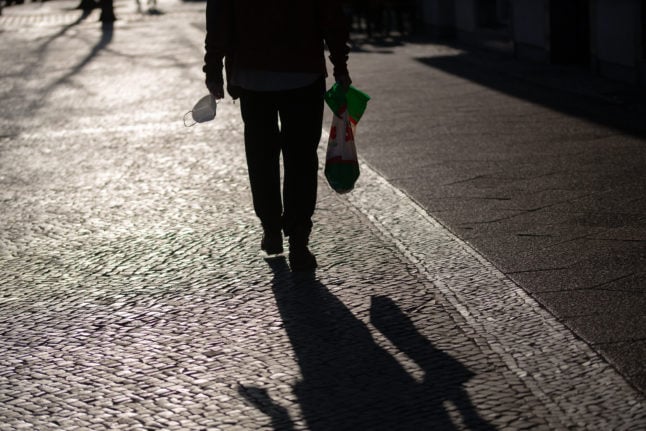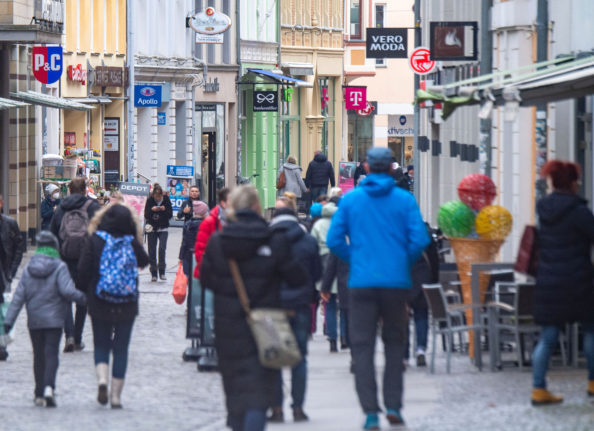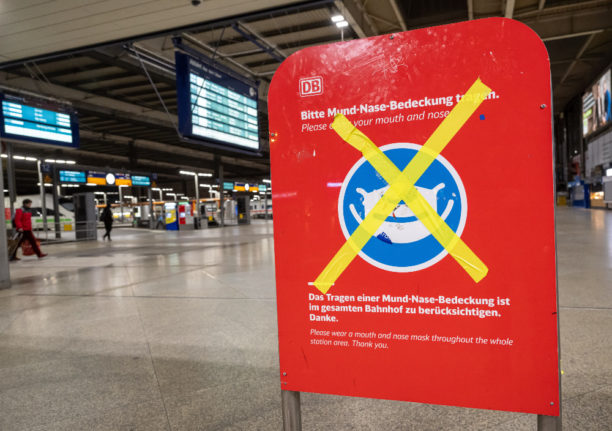What’s happening?
March 20th was meant to be Germany’s version of ‘freedom day’, when far-reaching Covid restrictions were to be lifted.
But most German states chose to extend the current restrictions – like the ‘G’ Covid entry pass system to get into public places like restaurants – until early April under a special two-week transition period.
That grace period finishes on April 2nd, meaning that German states will have to get rid of Covid restrictions because the legal basis will be gone. A handful of state ministers pushed for a four-week extension at the health ministers’ conference on Monday but were unable to secure a majority for the move.
That means that from Saturday, April 2nd, masks should no longer be mandatory in shops and restaurants (but will remain in local public transport and places like hospitals), and people generally won’t have to show proof of vaccination, recovery or a Covid test to go into public places (the 3G rule).
There is, however, a special mechanism in the new Covid Infection Protection Law called the ‘hotspot’ regulation, and if state parliaments believe it’s a critical situation and vote this in, then tougher Covid measures can stay in place.
However, many people say the hotspot regulation is confusing and not clearly defined – cue a lot of aggro among the states.
Who’s unhappy?
Several states say that legally binding criteria in order to declare a state or region as a Covid hotspot is lacking. But Health Minister Karl Lauterbach, of the Social Democrats, made it clear on Monday that the latest version of the Infection Protection Act would not be changed again.
Health policy spokesman for the CDU/CSU parliamentary group, Tino Sorge, told the Augsburger Allgemeine: “The central terms of the hotspot regulation should have been defined in the law, with clear thresholds and transparent criteria.”
Sorge said that major Covid rules being imposed cannot be linked to “vague words – especially not across the board for an entire federal state”.

State health Ministers on Monday held a meeting in a last ditch attempt to try and get a clearer statement from the federal government on the hotspot rule.
“Health Minister Lauterbach and Justice Minister Buschmann failed miserably at this,” said Sorge, who as a member of the CDU forms part of the opposition.
READ ALSO: German health ministers want Covid rules ‘extended until May’
Yet it’s not just opposition politicians who have raised concerns about the rule.
Chief Executive of the German Association of Towns and Municipalities, Gerd Landsberg, also sees problems.
“Regrettably, the legislator has not defined any criteria under which conditions a hotspot regulation can be considered,” he told the Rheinische Post.
“Already from the point of view of time, it might be questionable whether the state parliaments could enact individual regulations for individual regions – for example during holiday periods,” Landsberg said.
“That is why we expect the states to agree on a regulation that is as uniform as possible, so that an entire area or large parts can also be declared a hotspot as a precaution.”
Chief executive of the German Association of Cities, Helmut Dedy, told the Redaktionsnetzwerk Deutschland (RND) that the new Infection Protection Act curtails the toolbox for states and cities.
“We expect that the law will soon have to be corrected again. It was not a brilliant piece of work by the traffic light (coalition government made up of the SPD, Greens and FDP),” he said.
Other people are worried about Germany returning to a complicated patchwork of different measures – something we’ve seen throughout the pandemic that has caused major confusion.
Chairman of the German Hospital Association, Gerald Gaß, said he feared a lack of acceptance among the population if there are lots of different rules across states.
How is a hotspot defined?
The thresholds for when a region is a Covid hotspot are not quantified in the law. But the general prerequisite is that there is a threat of hospital capacities getting overloaded.
Health Minister Lauterbach recently named specific criteria to measures this: if hospitals could no longer provide emergency care – because of too many Covid patients or staff shortages, if they had to cancel scheduled procedures or transfer patients to other hospitals – as well as if specifications on a minimum presence of nursing staff could not be met.
READ ALSO: German Health Minister defends lifting of Covid measures
According to Robert Koch Institute (RKI) data, no federal state currently has a 7-day incidence of less than 1,000 Covid infections per 100,000 people.
The lowest incidence is currently in Berlin. Four federal states have an incidence of more than 2,000: Thuringia, Bavaria, Saarland and Mecklenburg-Western Pomerania.
At 2,280.6, Mecklenburg-Western Pomerania currently has the highest number of new infections per week among 100,000 inhabitants. That’s why the state parliament in Schwerin declared the entire state a hotspot five days ago. It means that measures such as mandatory masks in public indoor areas and certain access restrictions will remain in force until at least April 27th.
Across Germany on Tuesday, 237,352 Covid infections and 307 deaths were reported within the latest 24-hour period.
The 7-day incidence was 1,703.3 infections per 100,000 residents.
READ ALSO: Will Germany’s Covid infections ease up in time for Easter?
Is everyone happy about Covid restrictions being lifted in general?
Some say that more measures should be staying in place, especially because of the current wave of Covid infections.
After the talks between state health ministers on Monday, Bavaria’s health minister Klaus Holetschek (CSU) said: “Everyone agreed on the point: the obligation to wear masks indoors would actually still make sense at the current time – and nationwide.”
He said the fact that a mask obligation in all indoor public places cannot be extended was “unsurpassable in terms of absurdity”.
The federal government argues that a nationwide mask requirement is not possible because there is no threat of a nationwide overload of the health system.
Lauterbach has repeatedly called on states to impose more extensive measures in regional hotspots with critical situations. “We are losing time. From my point of view, action must be taken now,” said the SPD politician.
He said states should look to Mecklenburg-Western Pomerania as an example of how to work with the new law.
Several cabinets are meeting this Tuesday and will need to make decisions. As well as Mecklenburg-Western Pomerania, the city-state of Hamburg plans to also declare itself a Covid hotspot. Other states have said they currently see no legal grounds for introducing the hotspot rule.



 Please whitelist us to continue reading.
Please whitelist us to continue reading.
Member comments